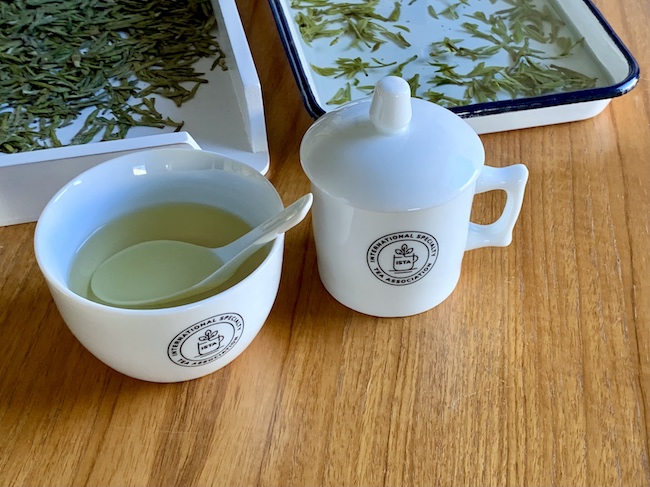The International Specialty Tea Association (ISTA) announced that it has developed evaluation protocols and assembled a panel of tasters who share a common lexicon and have calibrated their sensory expertise to consistently judge tea quality, based on the skill of tea makers that is evident in the cup.
- Caption: ISTA spokesperson Andrew McNeill on completing the first phase of tea evaluation protocols.
Hear the interview

ISTA Evaluations Based on the Tea Maker’s Skill
By Dan Bolton
During the past 14 months, ISTA worked closely with the Tucson-based ProSense Consumer Research Center to establish new protocols useful in evaluating a wide variety of specialty teas. Now that the protocols and panel are in place, the first full-panel descriptive analysis will be of black tea due to its commercial importance and high variability.
The Association writes that “Producers of black tea, new and old, are seeking a sustainable market for high-value, high-skill specialty products and need a system that recognizes and rewards tea makers for that effort.”
Dan Bolton: Will you tell our listeners about the organization?
Andrew McNeill: ISTA was founded as an education and research organization, a nonprofit. Over the last few years, our main project has been to develop evaluation standards, a framework for the evaluation of specialty tea, to give some shape to the premium tea products that producers are making tea and, increasingly, what consumers are buying.
Internationally, there aren’t a lot of standards that govern the quality and unlike other beverages, coffee, namely, where there are specific thresholds for what you could call a specialty coffee, there isn’t really a threshold or a uniform way of defining a specialty tea.
There are lots of different systems of evaluating teas of different origins, different qualities. But there isn’t really a lot of unification and agreement on how to evaluate your tea and what aspects you should be looking for.
Our project is trying to develop a system that can do just that.
Dan: The first challenge then was for ISTA to determine the common characteristics of well-made tea. To do so you enlisted Dr. Rena Shifren an academic with 30 years of experience in sensory evaluation and owner of ProSense Consumer Research Center.
Andrew: Over the past 14 months, Dr. Shifren, and her panel of tasters with ISTA have trained, calibrated, and experimented piloting a system for evaluating tea based on the skill of its tasters. The goal of this descriptive analysis panel included inventing the evaluation protocol, developing a shared lexicon that’s anchored in aroma and flavor references, and drafting a style guide.
It’s of course a challenging feat to pull off; something that can recognize commonalities of quality across the broad range of styles and preferences and regions that make up the tea industry globally.
What we’ve done for this project is train a panel to identify the sensory attributes of tea. Specifically what we focused on is identifying what are the commonalities of well-made tea. The goal here is to look at the skill of the tea maker. We want to find how that is reflected universally.
Dan Bolton: Soon after the panel began its work, COVID-19 infections reached new highs.
Andrew: Because participants in the project are from all over the country, all over the globe, it’s totally been conducted remotely which has been quite a challenge.
We’ve had some fits and starts getting things in place, but it’s also been a really important proving ground. The goal of this system is to have calibration in remote settings so tea that’s evaluated for certain qualities at origin can be evaluated in the same way at its destination, and even by its end-user.
If we’ve created a system that can serve all these different points in the supply chain, then we’re doing something right.
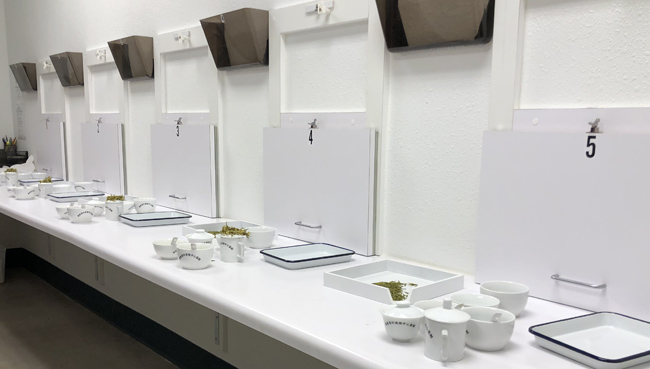
“What’s integral for us at this point, is feedback from tea producers, people who are operating at origin, who are advancing the specialty tea industry, who are putting out a premium tea product, or at least aspiring to that.”
– Andrew McNeill
Dan: How does one go about becoming certified as a taster who understands the standards and can apply them?
Andrew: We are still in the R&D phase here but we know ultimately that anybody who wants to train and calibrate with the system can do so. We’ve hit a milestone here but we’re still in the building phase. Next, we’ve got to really stress test it, if you will. So far we’ve looked at very established styles of what is generally recognized as premium tea or specialty tea. But we want to apply this to styles that maybe are newer, or maybe are emerging as a premium product, whereas before there weren’t. And so these challenges, we have to pick those up first.
Also, we have to make sure we’re building a useful system. What’s integral for us at this point, is feedback from tea producers, people who are operating at origin, who are advancing the specialty tea industry, who are putting out a premium product, or at least it’s aspiring to that.
We want to know if having this uniform method of evaluation, describing and informing purchases, or providing feedback from different points of the supply chain is useful to them.
It’s not just testing it with different teas, but with different points in the supply chain. So a lot of work remains to assure that we’ve got as useful and as functional a system as we possibly can.
The goal is to have something that isn’t sequestered away in one company or one segment of the industry but that is openly teachable, openly learnable, and can be adopted by tea producers, tea professionals, even consumers, the world over.
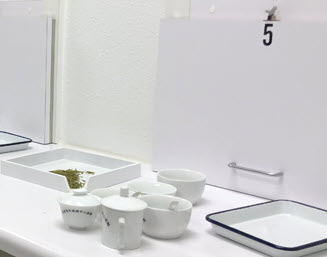
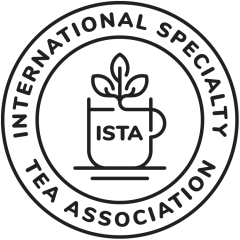
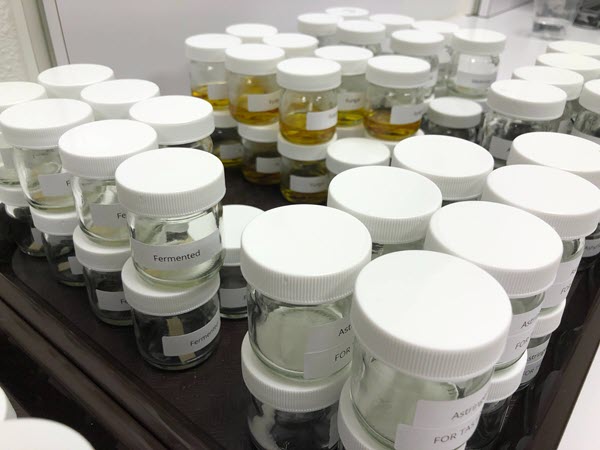

Dan: That’s a great mission that you’ve described. This brings to mind a few technical questions. Right now you are evaluating hot tea, not cold brewed tea or variations in the brewing technique, like iced tea, right?
Andrew: Right. Our evaluation protocol builds on a framework of what’s already been created, existing standards, and what’s already working. We are bringing that to the surface.
To answer your question directly we’re looking at hot tea. You will find our protocols pretty similar to what’s already established by ISO (International Standards Organization) with some changes in the way that the actual sensory analysis is done along with a formal ballot and procedure for scoring. This is done with hot tea at a pretty strong extraction. Traditional tea evaluation has, on the professional level, seeks to tease out the flaws, push the tea to its edge. That is why the hot extraction we are working with is fairly concentrated.
Dan: Assessing tea quality using protocols universally accepted by tea buyers and sellers should make it much easier to value transactions.
Andrew: Yeah, I mean, those producers will get a better price for their tea and that risk of trying to premiumize your line, and improve quality by experiment is going to be rewarded so you’re gonna be recognized.
That’s the hope.
We’re doing our best to stand on the shoulders of giants. We’re paying attention to existing systems of quality evaluation at origin. We’re not trying to redefine how people are judging the quality of their tea as the tea producer, we’re not trying to prescribe what tea is, really, we’re trying to take what’s already there, on a very sophisticated and well-understood level, and just bring that to the surface, bring it into common language, to where it’s understood across the supply chain.
Once that happens, you solve that issue of asymmetry and information between the buyer and seller at origin and destination. And with that, you can get better quality and a better price for producers. That’s our goal.
Related
Cupping Set
Donations of $50 or more will be awarded an official ISTA tea cupping set (while supplies last).
Link to share this post with your colleagues
Signup and receive Tea Biz weekly in your inbox.

Never miss an episode
Subscribe wherever you enjoy podcasts:

